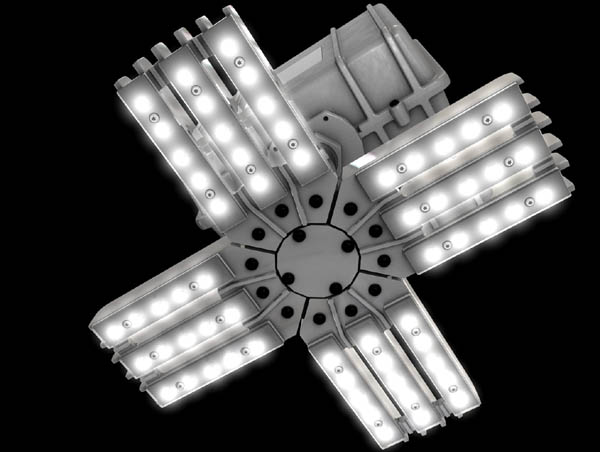High bay lighting fixtures are used in buildings that have high ceilings. They are used for lighting locations like warehouses, storage buildings, factories, garages, sports arenas, gyms and other facilities.
There are different types of high bay lights available and choosing specific types will have a big impact on the function and the appearance of the building. It is therefore important to consider the lighting needs of the facility when choosing the fixtures.
1. Design
When choosing high bay lighting, you need to consider the design. The two main types of designs available are the linear and the pendant fixtures. When choosing the design you should consider the roof type. Linear fixtures that are only a few inches thick can be installed where the ceiling is not too high.
The pendants, on the other hand, require more space and they are installed where there are high ceilings. You also need to decide whether you need lights that are protected or unprotected. This will depend on the use for the building. The protected lights have a wire cage or lens over them to keep them safe from damage.

2. Building’s function
You need to consider the function of the building when choosing the bay lights. You need to ensure that the activities taking place in the room do not interfere with the light fixtures. You also need to make sure that the lights are easy to operate and maintain.
Depending on the use or function of the room, you might need more regular cleaning or maintenance and you should consider this factor when choosing the fixtures. Make sure that the equipment in the room does not affect the lighting fixtures.
3. Installation
Make sure that you understand the installation process when choosing high bay lights. Most of the fixtures are large and heavy and there is need to create sufficient support from the ceiling. Make sure that you choose fixtures that can be supported adequately by the ceiling or roof surface. How different types of high bay light fixtures are installed will affect the appearance and use or function of the area.
Also make sure that you get experienced professionals to install the light fixtures to ensure safety. The professionals will give you advice on the most efficient and effective way to install the lights. They also offer advice on the ideal positioning for the best lighting effect.
4. Technology
You need to find out about the technology available so that you can get the best lighting for your premises. Most traditional high bay lights use HID or High Intensity Discharge technology while the modern fixtures use fluorescence bulbs. The fluorescence technology is much cheaper than the HID, and the fixtures are more energy efficient. If you are looking to save on energy costs, you should replace your old fixtures with new modern ones that are more environmentally friendly.
HID lighting will also usually require a warm-up time to light up after being switched on, while fluorescent bulbs come on immediately. Another option that is growing in popularity is the use of LED lights. They are more efficient than other alternatives and reduce energy costs by up to 80%.
5. Illumination needs
The amount of illumination you require will determine the best lighting fixtures. Some functions like factory operations may require a lot of illumination and for this; you need fixtures that offer adequate lighting over a great distance. If you need a lot of power, HID lights may be better suited for your facilities.
If, on the other hand, all you need is general lighting, the fluorescents are perfect. The fluorescent lights may not be ideal for ceilings that are above 15 feet high. The height of your ceiling will determine the best systems to choose.
6. Your budget
Your budget will determine the fixtures that you can install. There are many products in the market made by different manufacturers. The fixtures come in a wide price range and you can look for those that are within your budget.
Even while you consider the price, you should make sure that you get good quality and durable fixtures. Protected lights tend to be more costly than unprotected ones and if no person or object is likely to come close to the fixtures, you can choose the more affordable unprotected fixtures.

